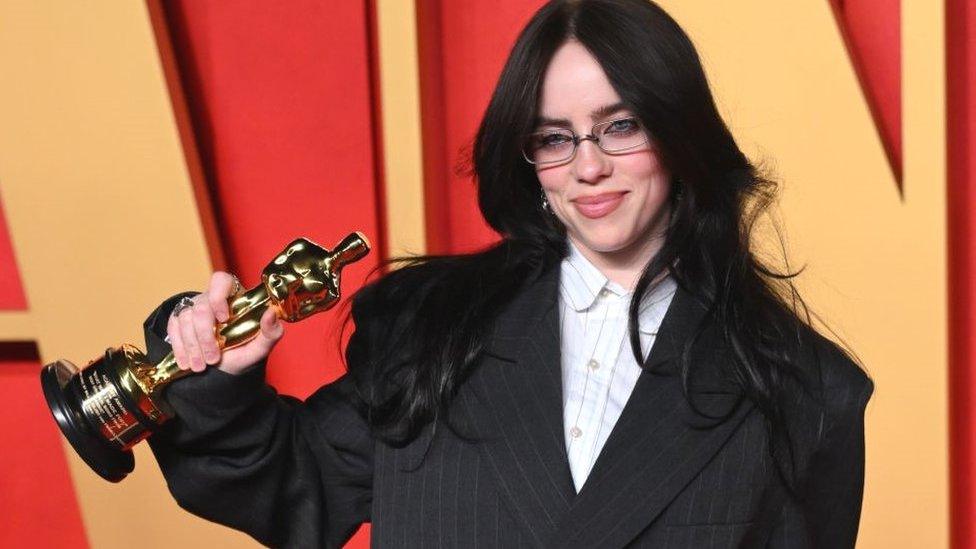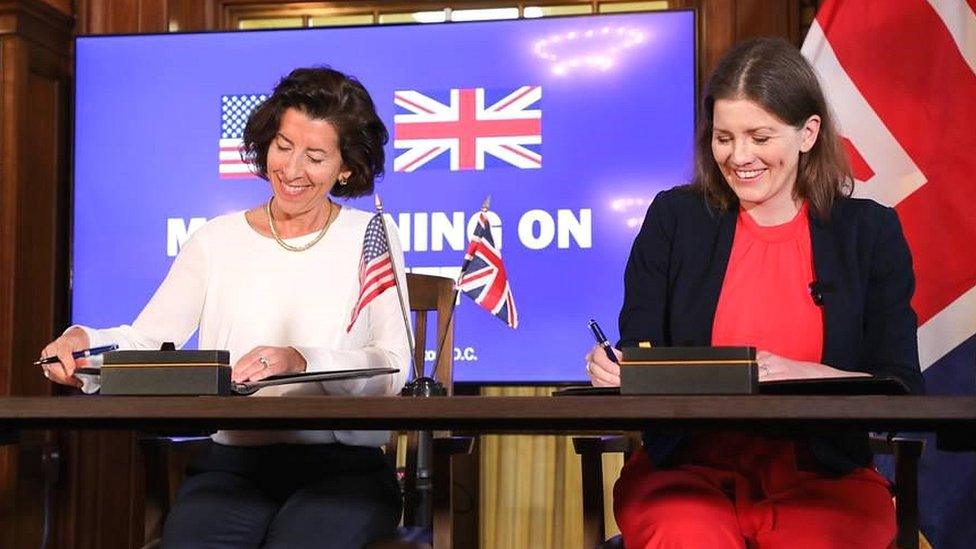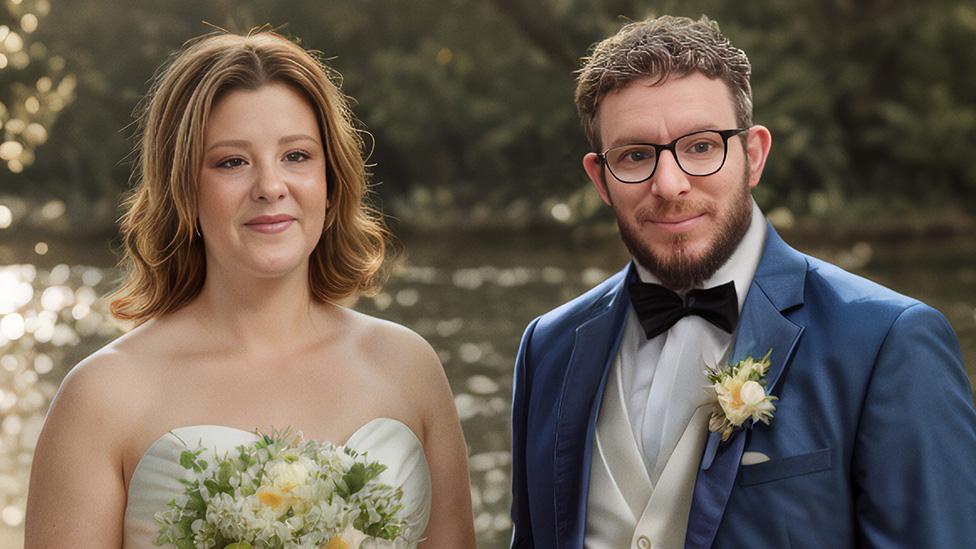Billie Eilish and Nicki Minaj want stop to 'predatory' music AI
- Published

Billie Eilish and Nicki Minaj are among 200 artists calling for the "predatory" use of artificial intelligence (AI) in the music industry to be stopped.
In an open letter also signed by Katy Perry and the estate of Frank Sinatra, they warn AI "will set in motion a race to the bottom" if left unchecked.
Tech giants including YouTube have tested AI music-making tools.
"We must protect against the predatory use of AI to steal artists' voices and likenesses," they said.
They have called on tech firms to pledge not to develop AI music-generation tools "that undermine or replace the human artistry of songwriters and artists, or deny us fair compensation for our work".
In an open letter organised by campaign group the Artists' Rights Alliance and posted on long-form writing site Medium, external, the artists say AI will "infringe upon our rights and devalue the rights of human artists" if it is used irresponsibly.
They said the way that artists' work is used to train some AI models and systems was "an assault on human creativity", and warned it was being used to "violate creators' rights, and destroy the music ecosystem".
Tom Kiehl, interim head of industry association UK Music, said he shared the concerns of artists who worry their work is being used to train AI without their permission.
"This amounts to music laundering and any companies engaged in these practices must stop and take a more responsible approach to our music industry," he said.
"Ensuring artists have given their consent and receive appropriate credit and compensation for the use of their work on AI systems must be the foundation to a more responsible approach."
Artists speak out
Artists spanning creative disciplines and genres have spoken out about how AI is used in recent months, after a song which used AI to mimic the voices of Drake and The Weeknd went viral online.
Drake voiced disapproval over the song which sounded a lot like him - but was in fact generated using AI voice cloning tools - and appeared on Spotify and Apple Music before being abruptly pulled down.
Other artists have since spoken out about it, with Sting telling the BBC he believes musicians face "a battle" to defend their work against the rise of songs written by AI.
"The building blocks of music belong to us, to human beings," he said.
But not all musicians oppose developments in or use of AI across the music industry, and electronic artist Grimes and DJ David Guetta are among those backing the use of such AI tools.
Grimes has even encouraged fans and budding musicians to use her voice "without penalty" and said she would split royalties on successful AI-generated tracks using her voice.
The BBC has approached Google, which owns YouTube, for comment.
Related topics
- Published2 April 2024

- Published30 March 2024
